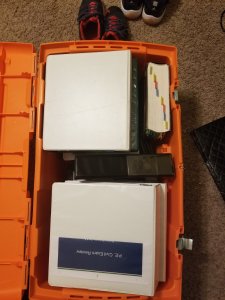- 9,141
- 1,797
- Joined
- Feb 15, 2009
anyone working as an engineer in the construction industry (MEP) ?
im 7months in at my firm and its ok, but its def not what i wanna work in the rest of my life. i can care less about building construction...was wondering if its hard to change industries, leaving MEP and going into something more technical? i don't want to be tainted, where the only job i can get would be MEP work...looking to make moves next summer/fall..
im 7months in at my firm and its ok, but its def not what i wanna work in the rest of my life. i can care less about building construction...was wondering if its hard to change industries, leaving MEP and going into something more technical? i don't want to be tainted, where the only job i can get would be MEP work...looking to make moves next summer/fall..






